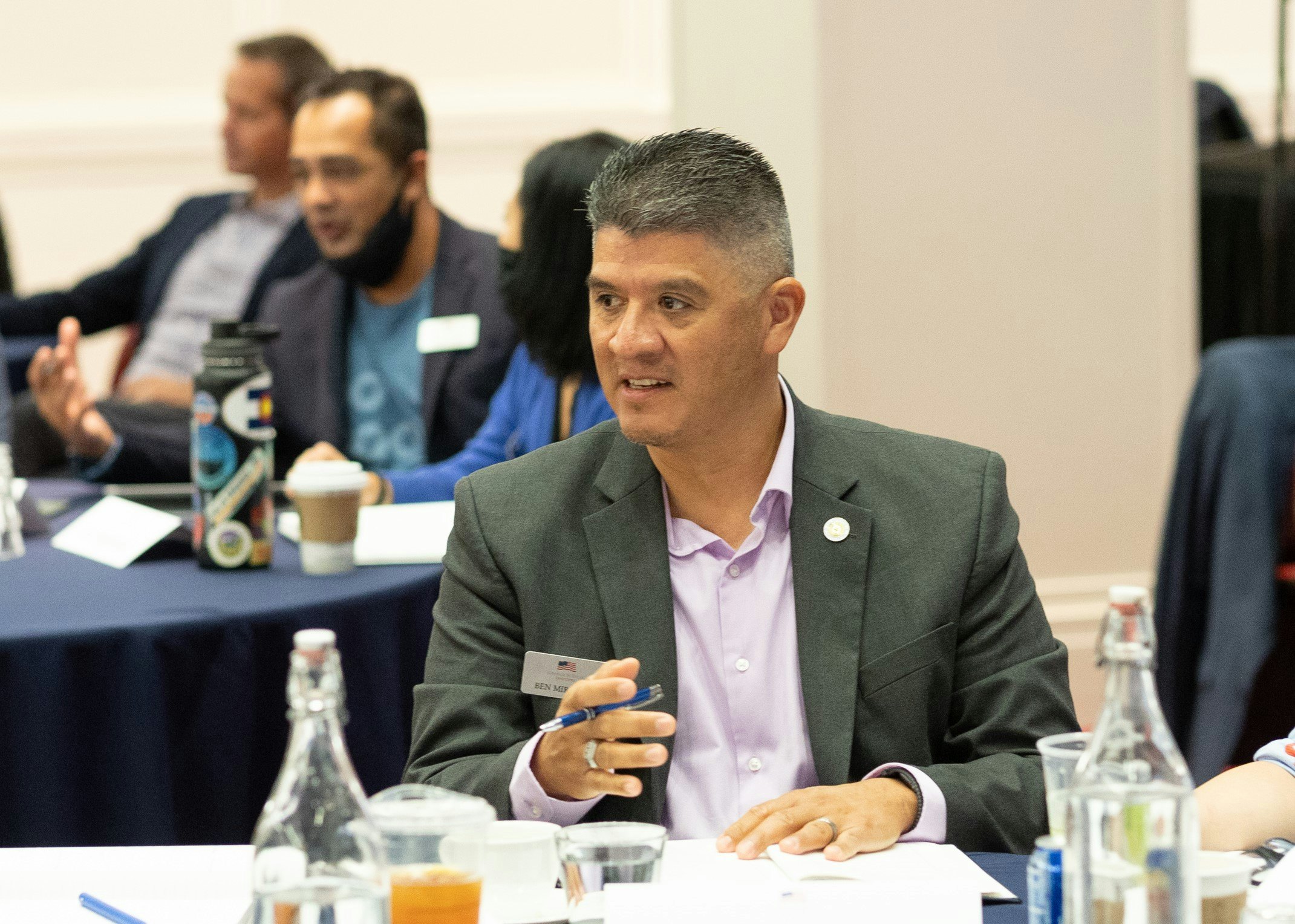This piece is part of an ongoing series to highlight Scholars of the 2019 Stand-To Veteran Leadership Program who represent the diversity of those included in the cohort, as well as the diversity of work that is represented throughout the program and within the veteran space.
Alex Hilliker brought an important perspective to the 2019 Stand-To Veteran Leadership Program in that he was the only male, non-veteran, non-spouse scholar within the class. However, his passion for making a difference in the lives of veterans is just as strong as that of his veteran peers.
His journey started when he joined Deloitte in 2012. At that time, like many Americans, Hilliker had minimal awareness of the unique challenges that service members and veterans experience, during and post transition. His first client project at Deloitte was working with the Army Medical Command to improve the Disability Evaluation System for wounded, ill, and injured service members. That experience was an introduction to veterans and those working to improve the transition process, and he immediately fell in love with the culture and the mission of helping service members, spouses, and caregivers make successful transitions from their military service.
That passion grew even more when, in the fall of 2014, Hilliker had the opportunity to serve as a volunteer at the Warrior Games in Colorado Springs. He was so inspired by what he experienced that he sought out more ways to be involved in veteran initiatives at Deloitte. From there, he supported multiple Warrior Games and Service Trials, the 2016 Invictus Games, and led several of Deloitte’s pro bono projects with organizations such as the U.S. Chamber of Commerce Foundation and Syracuse University’s Institute for Veteran and Military Families (IVMF).
The more individuals that Hilliker met who were involved with veteran transition, the more impressed he became with the men and women who have worn the uniform and made the choice to serve their country. His experiences helped him to better understand and appreciate the unique perspectives and insights veterans bring as leaders, team members, colleagues, and friends. The more that Hilliker learned about the challenges that service members faced in making successful and meaningful transitions from active duty, the more he felt a sense of duty. “If I can help one person get a job or improve their overall well-being, then it’s all been worth it,” he said.
What many do not know about Hilliker is that he too has a personal understanding of what it is like to start over and find a new identity. Hilliker was a college hockey player and, in 2009, he was involved in a severe car accident suffering a broken back, a fractured collar bone, and a punctured lung. That accident caused his life to completely change. He went through in-patient rehab for a month and out-patient rehab for a few additional months. He had to adjust to a new normal and a new way of living his life. This experience, similar in physical and mental determination, made his bond with transitioning veterans a little easier. Hilliker had to reinvent himself and understood the challenges that come along with that discovery, while also understanding that most of us need help along that journey.
Hilliker had always been fascinated by the study of leadership – the styles and techniques and the life experiences that shaped great leaders of the past. When he heard about the Stand-To Veteran Leadership Program, pairing leadership training with those working with veterans, he was very intrigued, but he didn’t realize the program was open to civilians until a close colleague pointed out that non-veterans could apply and encouraged him to do so.
Hilliker was accepted into the program, and while he thought that he understood how leadership looked, sounded, and felt, he stated that “he became more introspective and actually learned how to be himself, as a leader.” He realized that leadership is unique to every person and that no matter what role you play or where you serve, it is about influencing others to share your vision and achieve collective outcomes…it’s the results that matter and people are paramount.
Hilliker’s personal leadership project during the program was to create skills-based volunteer projects with veteran-serving non-profits, but it became so much more complex. It wasn’t until he was challenged to dig deeper into the problem that he was trying to solve that he really started understanding the “civilian-military divide” and realizing how he could play a role in bridging that gap. It gave him a greater appreciation for what he does in his job and set up opportunities for even greater impact in the future.
Alex Hilliker has a favorite quote from the late, great Pittsburgh Pirate, Roberto Clemente, who said, “Any time you have an opportunity to make a difference in this world and you don’t, then you are wasting your time on Earth.”
Hilliker is doing anything but wasting time. Through his participation in the Stand-To program and ongoing work in the veteran transition space, Hilliker understands the power associated with making a difference — and about caring about something so much bigger than oneself.






























